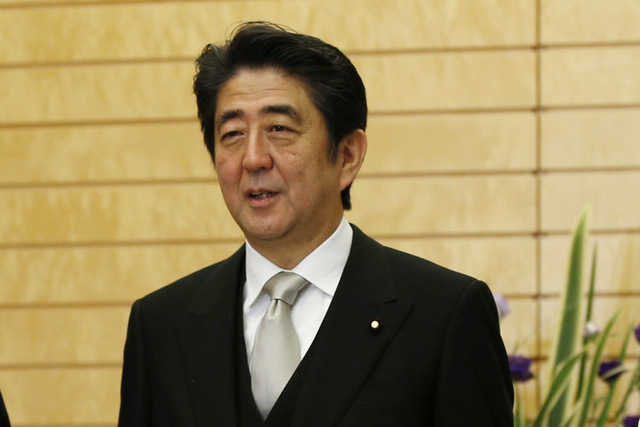Gaming in Japan: Not dead yet

To paraphrase Monty Python, gaming expansion in Japan is apparently not dead yet.
That’s good news to some of the world’s biggest casino operators.
They view the Land of the Rising Sun as the Holy Grail.
Reuters news service reported this week that a Japanese casino expansion bill wouldn’t be voted on by the time country’s legislature (or Diet) adjourns Nov. 30.
Union Gaming Group Managing Director Grant Govertsen, who is based in Macau, told investors two issues sunk the measure — skittishness by a high-level member of Japan’s ruling coalition and political unrest in the Cabinet of Japan’s prime minister, who has been the primary backer of casinos.
“The likelihood of a gaming expansion bill being passed this fall has declined,” Govertsen said.
He also cited recent public polling that showed upward of 60 percent of Japanese citizens are opposed to casinos.
Nevada-based casino companies have heard this before.
Bringing casinos to Japan has been an off-and-on process going back more than a decade.
This year’s effort seemed to have legs, based on several factors: support from Prime Minister Shinzo Abe, who made casino expansion part of his legislative agenda, the awarding of the 2020 Summer Olympics to Tokyo, and a push to increase tourism through the development of Las Vegas-sized convention and meeting centers.
This past spring, Japan lawmakers introduced a gaming bill, held a debate, but never voted on the measure.
That move was considered a victory by the casino industry.
“I just think there is a lot of overblown coverage about what’s going on in Japan,” MGM Resorts International Senior Vice President Alan Feldman said. “We have known for a long time this wasn’t going to be easy. I just don’t believe the effort will be stopped unless there is a change in the ruling party, the prime minister and the upper and lower houses (of the Diet).”
Feldman estimates he has traveled 12 to 15 times to Japan on behalf of MGM Resorts in the past two years. He’s become familiar with the airline routes to Tokyo and Osaka from Los Angeles, San Francisco and Vancouver, British Columbia.
“I haven’t done Seattle yet,” Feldman said.
Along the way, he’s crossed paths with representatives from Las Vegas Sands Corp., Wynn Resorts Ltd., Caesars Entertainment Corp. and Malaysia-based Genting Berhad. Even officials from regional casino operators Boyd Gaming Corp. and Illinois-based Rush Street Gaming have been spotted in Japan.
The casino industry views Japan as an untapped market. The investment community says gaming revenue in Japan could range from $10 billion to $15 billion annually, topping the yearly totals produced by Nevada and Singapore.
Feldman and other gaming executives shrug off the notion that Japan is opposed to gaming.
The International Business Times reported the Japanese Pachinko industry — a simple, low stakes gambling game — is estimated to be worth 20 trillion yen, which translates into about $187 billion.
Feldman said the key to Japanese casino expansion is the integrated resort plan, where the casino is just a part of the overall project. Japan, he said, lacks large-scale convention facilities, such as MGM Resorts’ Mandalay Bay convention center, MGM Grand’s conference center and the Sands Expo &Convention Center.
“It’s woefully undersized for big markets, such as Tokyo or Osaka,” Feldman said.
Last week, Las Vegas Sands Chairman Sheldon Adelson said on the company’s third-quarter earnings conference call that the Marina Bay Sands in Singapore was the perfect model for Japan.
“Our unique convention-based integrated resort development model will bring meaningful benefits to Japan in terms of business and leisure tourism, employment and economic growth,” Adelson said.
However, Adelson said Las Vegas Sands will withdraw from the Japan bidding process if legislation is enacted that bars Japanese citizens from entering the casinos.
“We are not interested in foreigners-only resorts,” he said.
Casino proponents believe a compromise for Japan is to follow the Singapore model, where casinos require entrance fees from residents.
Govertsen said if the Japanese casino measure dies this year, gaming expansion will again be part of the agenda when the Diet returns to session in early 2015.
Any delay probably means a casino won’t be ready in time for the 2020 Tokyo Olympics.
Feldman said the Japanese are looking beyond the Olympics and hoping to use integrated resorts as a way to boost visitation after the hoopla surrounding the Summer Games dies down.
Then again, when it comes to Japan gaming expansion, casino operators are always looking on the bright side of life.
Howard Stutz’s Inside Gaming column appears Wednesdays and Sundays. He can be reached at hstutz@reviewjournal.com or 702-477-3871. Find him on Twitter: @howardstutz.